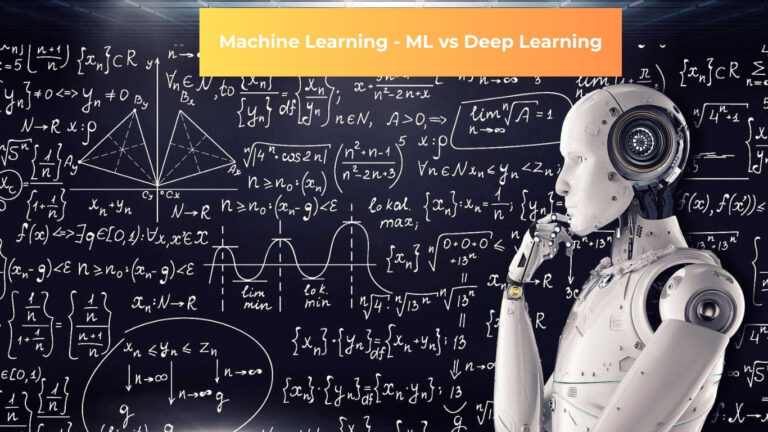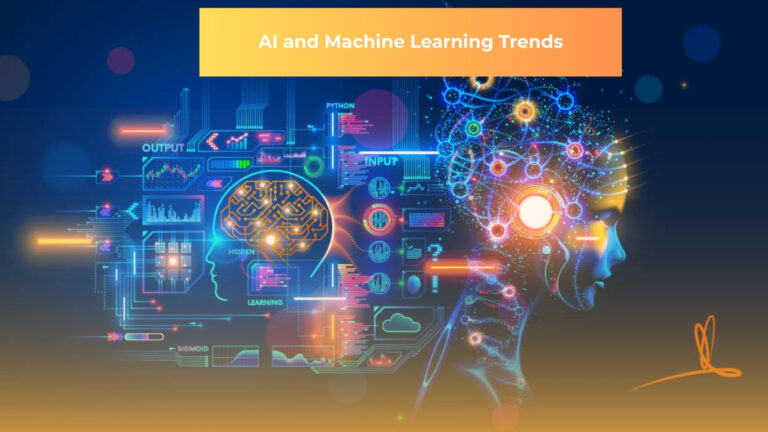The question “will cybersecurity be replaced by AI” has become one of the most pressing concerns among security professionals as artificial intelligence rapidly transforms the digital landscape.
While headlines about mass layoffs and AI automation fuel anxiety, the reality is far more nuanced than a simple replacement scenario.
However, rather than wholesale job displacement, the industry is experiencing a fundamental evolution where human expertise and AI capabilities converge to create more effective cybersecurity defenses.
Understanding AI’s Role in Modern Cybersecurity
What Is AI in Cybersecurity?

Artificial intelligence in cybersecurity refers to machine learning algorithms and automated systems designed to detect, analyze, and respond to cyber threats. These systems excel at processing vast amounts of security data, identifying patterns, and executing predefined responses at speeds impossible for human analysts.
Will cybersecurity jobs be replaced by AI in the traditional sense? The evidence suggests not entirely. AI currently handles routine tasks such as log analysis, alert triage, and basic threat detection, but cybersecurity remains fundamentally dependent on human judgment for strategic decision-making, ethical considerations, and complex threat analysis.
The Current State of AI Adoption
The cybersecurity workforce transformation is already underway. According to research, 45% of cybersecurity teams have implemented generative AI into their toolbox, while 42% of organizations are actively exploring or testing AI security tools. This rapid adoption is driven by the need to address the overwhelming volume of security alerts and the persistent skills shortage plaguing the industry.
The Numbers Behind the Transformation
Market Growth and Employment Trends
The cybersecurity market continues its explosive growth, with projections indicating the global market will reach USD 593.08 billion by 2033, growing at a CAGR of 9.6%. Meanwhile, the AI in cybersecurity market is expected to reachUSD 234.64 billion by 2032, exhibiting a CAGR of 31.70%.
Despite concerns about job displacement, employment in cybersecurity is actually increasing. The industry currently employs over 24 million individuals globally, with 1.4 million new jobs added in the last year alone.
However, this growth is overshadowed by the persistent skills shortage, with an estimated 3.5 to 4.8 million unfilled cybersecurity positions by 2026.
The Reality of Job Impact
While Goldman Sachs predicts that 300 million full-time jobs globally could be at risk from AI automation by 2030, the cybersecurity sector presents a more complex picture. The 2024 ISC2 study reveals that 25% of cybersecurity departments reported layoffs in 2024, but this was primarily driven by budget constraints rather than AI replacement.
More encouraging is that 82% of cybersecurity professionals believe AI will improve their job efficiency, while 66% see AI as representing career growth opportunities.
Only 33% express concerns about job elimination, suggesting the industry views AI more as an enhancement tool than a replacement technology.
How AI Is Reshaping Cybersecurity Roles
From Reactive to Strategic Work
The integration of AI cybersecurity professionals is transforming traditional job functions. Before AI implementation, cybersecurity analysts typically spent 80% of their time drowning in false positive alerts. Now, AI-powered tools filter this noise, allowing analysts to focus on genuine threats and strategic security initiatives.
👉 Get our in-depth IT communication guide now—free to download.
This shift enables entry-level professionals to handle mid-level tasks with AI assistance, while senior analysts concentrate on sophisticated attacks and strategic planning. The result is an elevation of the entire field from reactive firefighting to proactive security architecture.
Enhanced Human-AI Collaboration
The question Will Cybersecurity Be Replaced by AI underscores a shift toward human-AI collaboration as the future of cybersecurity
Human-AI collaboration cybersecurity represents the industry’s future direction. AI excels at processing large datasets and identifying patterns, while humans provide contextual understanding, ethical judgment, and strategic thinking. This partnership is particularly evident in threat hunting, where AI identifies anomalies and humans investigate their significance.
According to the World Economic Forum’s 2026 Artificial Intelligence and Cybersecurity report, two-thirds of cybersecurity professionals believe their expertise will augment AI technology, emphasizing the collaborative rather than competitive nature of this relationship.
Emerging Roles in the AI Era
New Hybrid Positions
The future of cybersecurity careers is increasingly defined by hybrid roles that combine traditional security expertise with AI knowledge. Key emerging positions include:
- AI Security Engineers design and implement AI-powered security systems, requiring deep understanding of both cybersecurity principles and machine learning algorithms. These professionals build models to detect new malware variants, test AI systems for vulnerabilities, and integrate automated tools into existing security infrastructures.
- AI Governance Specialists ensure ethical and compliant AI deployment within security operations. They develop policies for responsible AI use, audit systems for bias and effectiveness, and train teams on AI-related risks and best practices.
- AI Threat Analysts leverage artificial intelligence to analyze threat patterns, predict attack vectors, and develop proactive defense strategies. These roles require expertise in data science, threat intelligence, and behavioral analysis.
- AI Ethics and Compliance Officers focus on the responsible implementation of AI in cybersecurity, ensuring systems adhere to regulatory requirements and ethical standards while mitigating risks related to AI bias and transparency.
👉 Get our in-depth IT communication guide now—free to download.
Skills Evolution in Cybersecurity

The cybersecurity skills AI era demands professionals develop competencies that complement automated systems. According to industry research, the most in-demand skills now include:
AI and Machine Learning Fundamentals have become essential, with AI literacy jumping into the top five required cybersecurity skills in 2024. Professionals must understand how AI models work, interpret their outputs, and identify when systems may be making errors.
Data Science and Analytics capabilities enable security professionals to work with large datasets and extract actionable insights. This includes understanding statistical analysis, data visualization, and pattern recognition.
Ethical AI Implementation skills are increasingly valuable as organizations navigate the responsible deployment of AI security tools. This includes understanding bias mitigation, transparency requirements, and regulatory compliance.
The Reality of AI Limitations
Why Full Replacement Isn’t Feasible
The question Will Cybersecurity Be Replaced by AI sparks debate, but full human replacement in cybersecurity remains impractical due to AI’s inherent limitations.
AI systems excel at processing vast datasets, such as detecting anomalies in network traffic, but lack contextual understanding, leading to false positives or negatives.
For example, an AI might flag a login from an unusual location as a threat, but only human analysts can confirm if it’s an employee working remotely or a phishing attempt. Moreover, AI struggles with novel threats like polymorphic malware or zero-day exploits, which evolve faster than training datasets.
Human creativity, using low code no code platforms to build adaptive security tools, is essential for countering these sophisticated attacks. Thus, Will Cybersecurity Be Replaced by AI underscores the need for human-AI collaboration, not replacement, to ensure robust cybersecurity.
The Ethical Imperative
As Will Cybersecurity Be Replaced by AI discussions grow, ethical challenges in AI-driven cybersecurity demand human oversight. AI systems, even those built with AI-driven no code development, risk biased decision-making, such as misidentifying legitimate user behavior due to flawed algorithms, potentially violating privacy standards like GDPR or NIST 800-53.
Over-reliance on AI without human governance can lead to discriminatory outcomes or vulnerabilities to adversarial AI attacks, where hackers manipulate AI models to bypass detection. Human judgment ensures ethical alignment, balancing security with privacy in cost-effective app development for compliance tools.
Global Workforce Trends and Future Outlook
Regional Variations in AI Adoption
The adoption of AI in cybersecurity jobs varies significantly across regions. North America leads in AI cybersecurity investment, accounting for over 36% of global market revenue. Europe follows with strong growth driven by regulatory requirements and increased cyber threat awareness.
Asia-Pacific represents the fastest-growing region for cybersecurity AI adoption, driven by rapid digital transformation and government initiatives promoting cybersecurity excellence.
Contact us for a free consultation!
Training and Certification Evolution
Educational institutions and certification bodies are rapidly adapting to the AI transformation. ISC2 launched its Building AI Strategy Certificate in 2026, specifically designed to help cybersecurity professionals integrate AI capabilities into their skill sets. Similar initiatives from other organizations indicate industry-wide recognition that cybersecurity skills AI era demands continuous learning and adaptation.
The Economic Impact of AI Transformation
Cost-Benefit Analysis
The question Will Cybersecurity Be Replaced by AI often centers on economics, as organizations adopting AI cybersecurity solutions report significant cost savings alongside enhanced security. However, addressing Will Cybersecurity Be Replaced by AI requires balancing upfront investments in training, cloud-based infrastructure for machine learning models, and change management.
These savings, paired with improved security posture, make AI a game-changer, but human oversight ensures Will Cybersecurity Be Replaced by AI remains a question of collaboration, not replacement.
Investment Trends
As Will Cybersecurity Be Replaced by AI fuels industry debates, investment trends show strong confidence in AI-enhanced cybersecurity. Venture capital and private equity firms are betting on AI-driven no code development to create scalable security apps, with low code no code platforms driving 40% faster development for tools like intrusion detection systems.
The surge in funding underscores that Will Cybersecurity Be Replaced by AI is less about displacement and more about empowering organizations with hybrid human-AI solutions for a secure future.
Practical Steps for Cybersecurity Professionals
Adapting to the AI Era
Cybersecurity professionals concerned about “will cybersecurity be replaced by AI” should focus on developing complementary skills rather than competing with automation. Key recommendations include:
Embrace Continuous Learning by staying current with AI developments, understanding machine learning principles, and learning to work effectively with AI-powered tools. This doesn’t require becoming a data scientist but does demand familiarity with AI capabilities and limitations.
Develop Strategic Thinking Skills that complement AI’s tactical capabilities. Focus on threat hunting, security architecture, risk assessment, and business alignment activities that require human judgment and creativity.
Build Communication and Leadership Abilities as organizations increasingly need professionals who can translate between technical AI capabilities and business requirements. The ability to explain AI decisions to stakeholders and guide AI implementation becomes increasingly valuable.
Career Positioning Strategies
Professionals should position themselves at the intersection of traditional cybersecurity expertise and AI knowledge. This might involve specializing in AI security, pursuing relevant certifications, or developing expertise in specific AI applications like automated incident response or predictive threat analysis.
The most successful cybersecurity professionals in the AI era will be those who can guide organizations in responsibly implementing AI while maintaining strong security fundamentals and ethical oversight.
Future Predictions and Industry Evolution
The Next Five Years As the question Will Cybersecurity Be Replaced by AI gains traction, the cybersecurity landscape is set to transform rapidly by 2030. Most cybersecurity roles will integrate AI, leveraging tools like machine learning for real-time threat detection, anomaly-based intrusion prevention, and automated incident response.
For example, AI-driven Security Information and Event Management (SIEM) systems, built on low code no code platforms, will analyze petabytes of data to identify threats 60% faster than traditional methods (Gartner, 2026). Professionals will shift from manual log reviews to overseeing AI systems, ensuring zero-trust architectures are enforced across cloud environments. New roles, such as AI Security Engineers and Algorithmic Bias Analysts, will emerge to secure AI models against adversarial attacks, a growing concern as Will Cybersecurity Be Replaced by AI debates highlight vulnerabilities in AI itself.
Long-term Outlook The question Will Cybersecurity Be Replaced by AI will fade as the industry evolves toward integrated human-AI teams by 2035. Future cybersecurity professionals will act as strategists, collaborating with AI like a co-pilot to navigate complex threats, such as quantum-based attacks that could break traditional encryption (e.g., RSA) in seconds. AI will power predictive analytics, using behavioral models to flag insider threats with accuracy, but human oversight will remain vital for ethical decisions, like balancing privacy with security in GDPR-compliant systems.
AI-driven no code development will enable rapid creation of secure apps, with platforms like OutSystems integrating AI to enforce zero-trust policies automatically. Organizations embracing Will Cybersecurity Be Replaced by AI as a call to innovate will invest in upskilling for AI literacy and quantum-resistant cryptography, ensuring resilience against emerging threats.
The future isn’t about replacement—it’s about synergy, where Will Cybersecurity Be Replaced by AI becomes a question of how humans and AI can create robust, efficient cybersecurity ecosystems together.
HBLAB – Your Trusted Partner in AI-Enhanced Cybersecurity Solutions
In an era where AI cybersecurity professionals are reshaping the industry landscape, HBLAB stands at the forefront of this technological revolution, delivering cutting-edge security solutions that combine artificial intelligence capabilities with deep human expertise.
With over 630+ skilled professionals and strong English proficiency, HBLAB brings a unique advantage to organizations navigating the complex intersection of AI and cybersecurity. Our 30% senior-level workforce with over 5 years of experience ensures that AI implementations are guided by seasoned judgment and strategic thinking.

Our CMMI Level 3 certification demonstrates our commitment to process excellence in delivering AI-enhanced security solutions, while our cost-effective approach – offering services 30% lower than traditional rates – makes advanced cybersecurity accessible to organizations of all sizes.
HBLAB’s AI expertise since 2017, including strategic partnerships with institutions like VNU’s Institute for AI, positions us to help organizations successfully implement human-AI collaboration cybersecurity strategies.
Our flexible engagement models support offshore, onsite, and dedicated team arrangements, ensuring seamless integration with your existing security operations.
Whether you need AI-powered threat detection, automated incident response systems, or strategic guidance on cybersecurity workforce transformation, HBLAB provides the expertise and technology solutions to keep your organization secure in the AI era.
FAQ Section
1. Can AI completely replace cybersecurity professionals?
The question Will Cybersecurity Be Replaced by AI is a common concern, but AI cannot fully replace cybersecurity professionals. While AI excels at analyzing vast datasets and automating routine tasks like log monitoring, human judgment, ethical decision-making, and strategic planning remain irreplaceable. A 2024 ISC2 study shows 88% of professionals view AI as an enhancer, not a replacer, in cybersecurity roles. HBLAB’s AI-driven solutions complement human expertise for robust security.
2. What cybersecurity jobs are most at risk from AI automation?
Regarding Will Cybersecurity Be Replaced by AI, entry-level roles like basic log analysis, alert triage, and signature-based threat detection are most vulnerable to automation. However, these jobs are evolving, with professionals shifting to strategic oversight and complex threat hunting, ensuring Will Cybersecurity Be Replaced by AI remains a question of adaptation, not elimination. Upskilling with AI knowledge keeps professionals relevant.
3. What new cybersecurity jobs is AI creating?
As debates around Will Cybersecurity Be Replaced by AI grow, AI is creating hybrid roles like AI Security Engineers, AI Governance Specialists, AI Threat Analysts, and AI Ethics Officers. These positions blend cybersecurity expertise with AI proficiency, meeting rising demand for AI-driven no code development in security tools.
4. How can cybersecurity professionals prepare for the AI era?
To address Will Cybersecurity Be Replaced by AI, professionals should gain AI literacy, master machine learning basics, and focus on strategic skills like threat modeling that complement automation. Pursuing certifications in AI-enhanced cybersecurity ensures competitiveness. HBLAB offers training in cost-effective app development for security tools, helping experts thrive in an AI-driven world. Continuous learning is key to staying ahead.
5. Will there still be a cybersecurity skills shortage with AI automation?
The question Will Cybersecurity Be Replaced by AI often overlooks the persistent skills shortage. AI automates tasks, but the industry still faces 3.5-4.8 million unfilled positions by 2026, shifting toward AI-skilled professionals. Scalable low code solutions bridge this gap by building AI-enhanced security tools, addressing Will Cybersecurity Be Replaced by AI with hybrid expertise.
6. How is AI improving cybersecurity effectiveness?
Concerns about Will Cybersecurity Be Replaced by AI are eased by AI’s ability to enhance cybersecurity through faster threat detection, fewer false positives, and automated incident response. Predictive analytics, powered by AI-driven no code development, improve efficiency by 40% (Forrester, 2026).
7. What are the main challenges in implementing AI for cybersecurity?
Addressing Will Cybersecurity Be Replaced by AI requires tackling challenges like training AI for specific environments, managing false positives, ensuring policy alignment, and maintaining human oversight. Low code no code platforms streamline AI integration, but success hinges on expert implementation. HBLAB’s scalable low code solutions overcome these hurdles, ensuring secure, tailored deployments.
8. Is cybersecurity still a good career choice in the AI era?
Despite questions like Will Cybersecurity Be Replaced by AI, cybersecurity remains a top career choice, with 1.4 million new jobs added globally in 2024 (ISC2, 2024). Professionals who adapt to AI, leveraging best low code no code platforms for security tools, find vast opportunities. HBLAB supports career growth with AI-driven training, ensuring professionals thrive. The field’s rapid growth guarantees long-term potential.
The question Will Cybersecurity Be Replaced by AI highlights an evolution, not an extinction, in cybersecurity. While low code no code platforms and AI automate routine tasks and enhance threat detection, human expertise, ethical judgment, and strategic thinking remain vital.
Professionals and organizations leveraging HBLAB’s AI-driven no code development discover that Will Cybersecurity Be Replaced by AI is less about replacement and more about collaboration, creating robust, efficient cybersecurity operations that combine human intelligence with AI power for unmatched security in 2026.
Read more:
– AI in Ecommerce: Extraordinary Trends Redefining Online Shopping Worldwide
– Agentic AI In-Depth Report : The Most Comprehensive Business Blueprint
– Agentic Reasoning AI Doctor: 5 Extraordinary Innovations Redefining Modern Medicine




